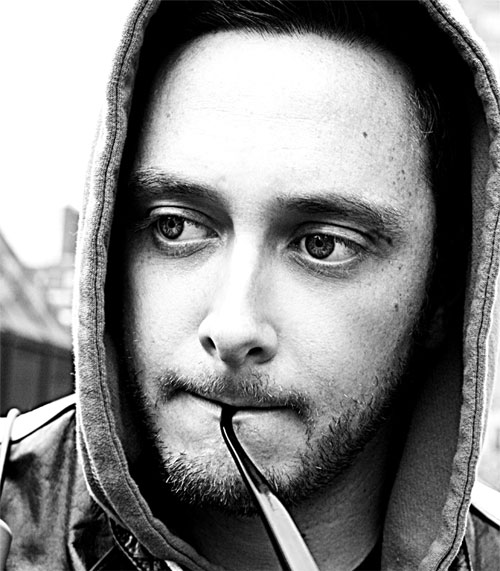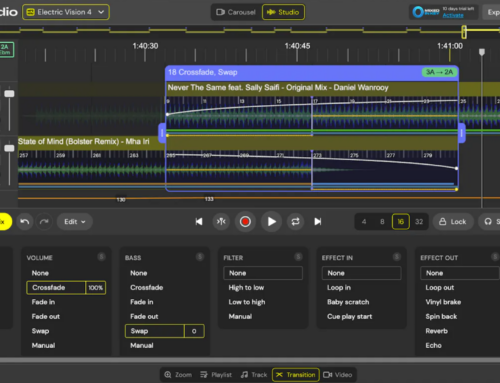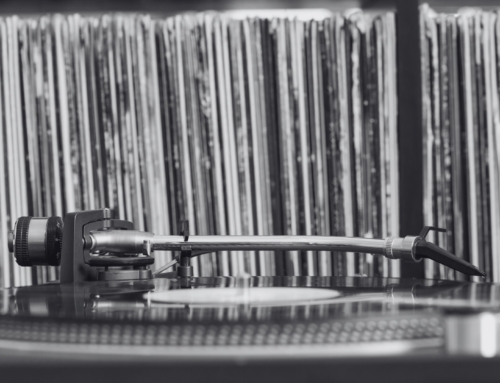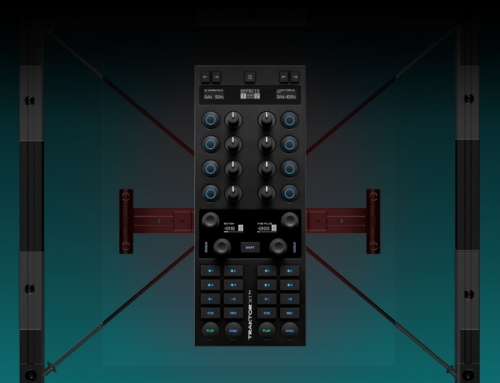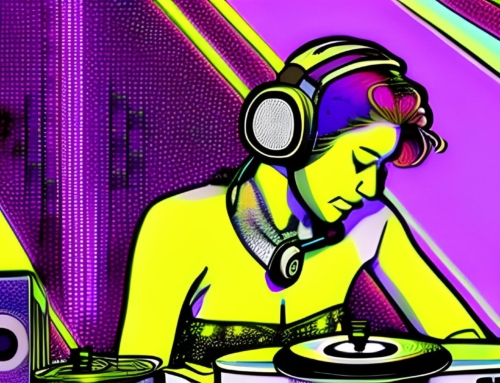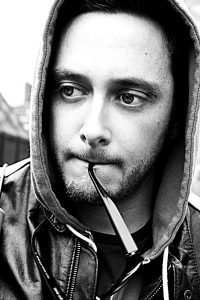 Part of the New York electronic dance music scene for more than 20 years, DJ EBAR is a multi-genre-spanning producer and DJ. Creating and producing deep house, progressive, and techno under this name and as Indicant, DJ EBAR has shared the booth with many notable performers and spun in some of the city’s well-known clubs, including Cielo, Sullivan Room, Le Souk, and BED. He’s also performed in other U.S. and international locations, including in Thailand, Budapest, and Paris.
Part of the New York electronic dance music scene for more than 20 years, DJ EBAR is a multi-genre-spanning producer and DJ. Creating and producing deep house, progressive, and techno under this name and as Indicant, DJ EBAR has shared the booth with many notable performers and spun in some of the city’s well-known clubs, including Cielo, Sullivan Room, Le Souk, and BED. He’s also performed in other U.S. and international locations, including in Thailand, Budapest, and Paris.
DJ EBAR’s career spans both mainstream and underground music. Since starting in 1990, he has remixed Deborah Harry, Ludacris, Boomkat, and other chart-topping artists and managed multiple independent labels, including Sifted for Techno, Central Park Records for soulful and deep house releases, and, more recently, Quarterlife Records NYC for tech and progressive house.
How did you get into producing house music?
DJ EBAR: How I came to produce house music was a confluence of a few different things, but if you’re asking… I grew up being trained in classical piano since age 5, that kid who was forced to practice an hour every day. I hated it at the time but still send a thank you card every Mother’s Day. In the ‘80s my oldest brother got me into some industrial and freestyle sounds, like New Order and Information Society, and at the turn of the decade, I started using a fake ID and a bad suit to sneak into clubs in Chicago like Crobar, Kaboom, Shelter, Jubilation, Cairo, etc. I immediately fell hard into house and techno, which was at its infancy. I remember hearing linear tracks like Speedy J/Pullover and Interactive/Elevator Up And Down, or deep soulful tracks like Cajmere/Brighter Days, which completely changed my way of thinking about music. It was counterintuitive to me that music could just repeat simple electronic sounds over and over to a 4/4 kick drum and still create an emotive and trance-like experience, but it did. I met DJ Psycho Bitch, who showed me the basics of beat matching. My brother gave me a pair of Technics 1200s (which I still have), so I started buying vinyl at Gramaphone Records and practicing in my basement. I had my first DJ gig at the end of 1990 and started studying house music carefully. By 1994, I was a baked college kid at Florida State University. I embezzled money from my parents that was meant for school expenses, and instead bought an Ensoniq ASR-10 sampling workstation (still have that, too). I fused what I had learned about observing and DJing electronic music with the foundational knowledge of my piano and music theory training, and I started releasing experimental tracks on vinyl, which played into Florida’s melodic progressive scene at the time. I kept writing and sharpening my skills and here we are.
For producing, why did you decide to have two separate alter egos?
DJ EBAR: EBAR is a high school nickname that fuses my real first and last name. I’ve used this for my projects since 1994, and throughout the 2000s, the name had been associated with my releases on soulful/deep house labels like King Street, West End, Central Park Recordings, Peng, and so forth. Around 2008, I found myself more interested in producing techno, tech house, electro, and progressive. It didn’t make sense to confuse my EBAR discography with these different sub-genres, so I started releasing those styles as Indicant.
Do you have any projects currently in the works?
Lots. I’m working with NYC vocalist Sarah Tracey and DJ/producer Ryan Negrin (half of the Samsara duo) on a very slick nu-disco EP. I’m working with San Diego vocalist Alexandria Tava on a leftfield nu-80s EP that is turning out to be super original. I’m working with Serge Sklyarenko (DJ and owner of the famous Sullivan Room clubs in NYC and Kiev) on some dope tech-house tracks incorporating classic 80s vocals. I’m working on some originals and remixes which will appear on Sullivan Room’s 10th anniversary mix compilation, which I believe will be released on Nervous Records. I’m working on an original piano-house project with vocals by Royal Sapien. I’m also working on some top secret stuff under a new moniker, Cuatro Tacos, which leans more into nu-disco and breaky indie dance stuff. I’m even working on a bootleg electro-bossa mashup between Gotye/Somebody I Used To Know and Tito & Tarantula/After Dark (remember that hot Salma Hayek dance scene in From Dusk Til Dawn?). So yeah. Keeping active.
You have been DJing and producing since the 1990s, being based in Chicago, Florida, Arizona, Paris and New York. From your perspective, how has the scene changed over those 20-plus years?
DJ EBAR: Musically, I’ve watched the scene proliferate from having two styles – house and techno – to the multitude of crisscrossing sub-genres we see today. What an incredible and inventive evolution. Right now, I’m personally deeply motivated by nu-disco and indie tronic tracks that take cues from ‘80s music, artists like Tiger & Woods, Gigamesh, PenguinPrison, Goldroom, Plastic Plates, Classixx, Zimmer, Chris Jylkke, and so on. What else has changed in the production scene… well, in the early ‘90s it was expensive to produce this kind of music – think about it, you needed proper studios loaded with pricey hardware to make the tracks, you had to have a ton of technical know-how, and then a label who was willing to invest a lot of money and risk in a vinyl pressing and distribution of your track. This made it so that only the committed and die-hard artists would make the music, and there weren’t a lot of people doing it for that reason. Today, any kid with an Internet connection and a half-decent laptop can get free or hacked software production tools that blows away ‘90s production technology. That’s a good thing and a bad thing. Good, because it levels the playing field and enables producers in every corner of the globe, regardless of their financial situation or geography. Bad, because everybody and their grandma is producing electronic music now, so there is a lot of noise out there (aka crap tracks). As far as the scene itself, it’s gotten much more commercial in America. I stopped going to the WMC four years ago. It’s a shit show.
House music has recently become popular in the U.S. What’s your perspective on this recent popularity?
DJ EBAR: It’s gotten popular? Where have I been?
You’ve played at several venues during your career. What has been your favorite venue to play? What about your favorite in New York?
My favorite parties to play at have been the outdoor beach parties in southern Thailand, like the Full Moon Party. Folies Pigalle in Paris was also fun in the late ‘90s. I also treasure my time as Saturday nightc o-resident (with Jay Maggard) at the infamous New York club Le Souk from 2008 to 2010. That was a sick underground party every weekend. Sullivan Room has always been great here in New York and kept the underground feeling alive. Playing at Cielo is always great too – that Funktion One sound system is fun as hell.
Over the years, how has your live setup changed?
DJ EBAR: Vinyl from 1990 to 2007, CDs from 2007-2011, Traktor and the brilliant Native Instruments S4from 2011 to present.
What equipment do you use presently in the studio?
XP on PC, Cubase, loads of third-party plugins from Native Instruments, Spectrasonics, Arturia, Rob Papen, etc, and a NovationSL MK2 controlling everything. I’m starting to use Logic on my MacBook and am also messing around with making some tracks on Ableton 8 lately, just to push my comfort zone and see if that produces different (and potentially interesting) results. I also really want to upgrade to some Dyn Audio monitor speakers this year.
Tell me about your record labels: When and how did they start, and where are they going?
DJ EBAR: I started a vinyl techno label in New York called Sifted Recordings with Belfast techno pioneer Ramie Burns in the early 2000s. We had something like 25 good vinyl releases but our distributor screwed us pretty hard, so the project went dormant. Who knows, a digital version of the label might pop back up some day. I ran the seminal deep house label Central Park Recordings with Satellite Records founder Scott Richmond in the mid-2000s. Amazing and timeless releases from the likes of Tortured Soul, Osunlade, Eric Kupper, Derrick Carter, Jon Cutler, and other deep house soldiers. I also have a tech-house and progressive label called Quarterlife Records NYC that been active for the past four years. Really cool and high-quality tracks from predominantly up-and-coming NYC and European producers, with some Latin American guys sprinkled in as well. Here are some clips of the label launch party at Cielo in New York http://www.youtube.com/watch?v=eN87ZBWSfhI,and a recent 2012 release party for our artist Heather M also at Cielo http://www.youtube.com/watch?v=8oi4jIxPTxo. Those parties were so good. You can also find the label on Beatport at http://www.beatport.com/label/quarterlife-records-nyc/8966. Support!
In terms of performing, do you have any gigs coming up, and if so, when and where?
Next up is a tech-house party outside Toronto on June 16, 2012 called Summer Camp 4, which is thrown over the course of a weekend in an actual summer camp that the promoters rented out. You sleep in bunk beds in a cabin and everything.

